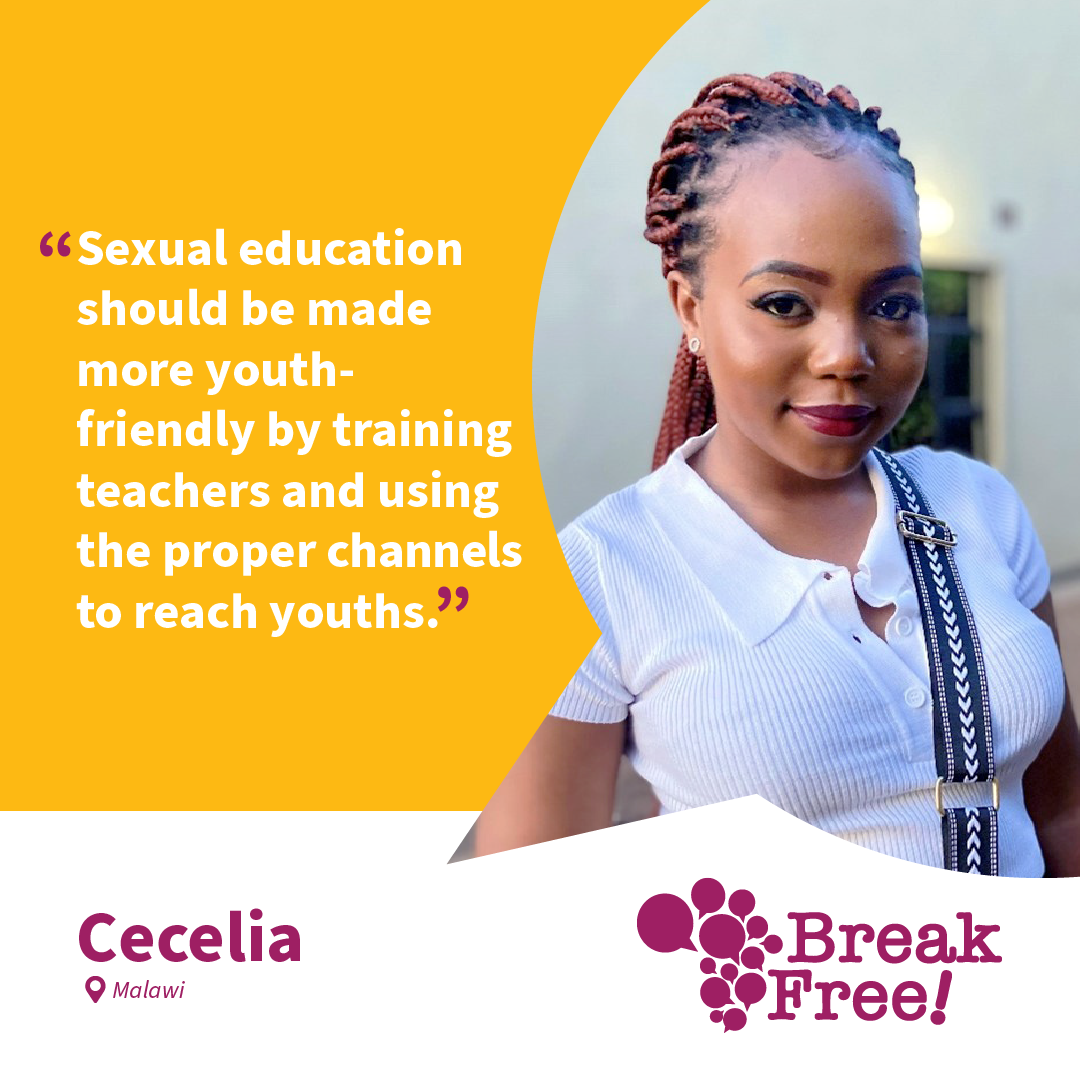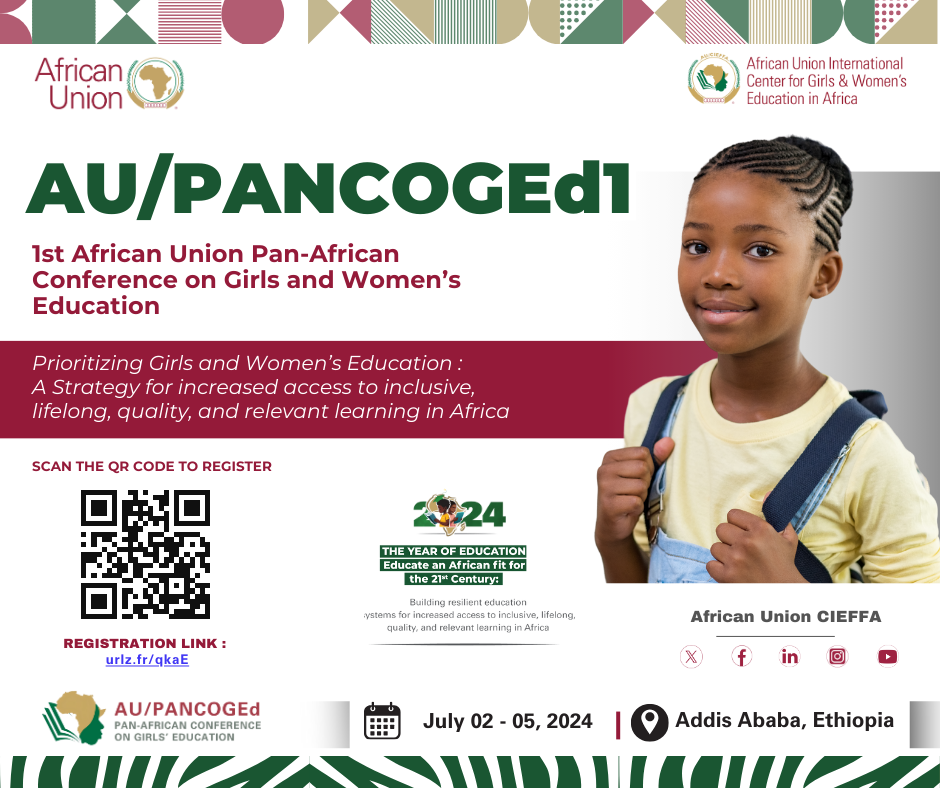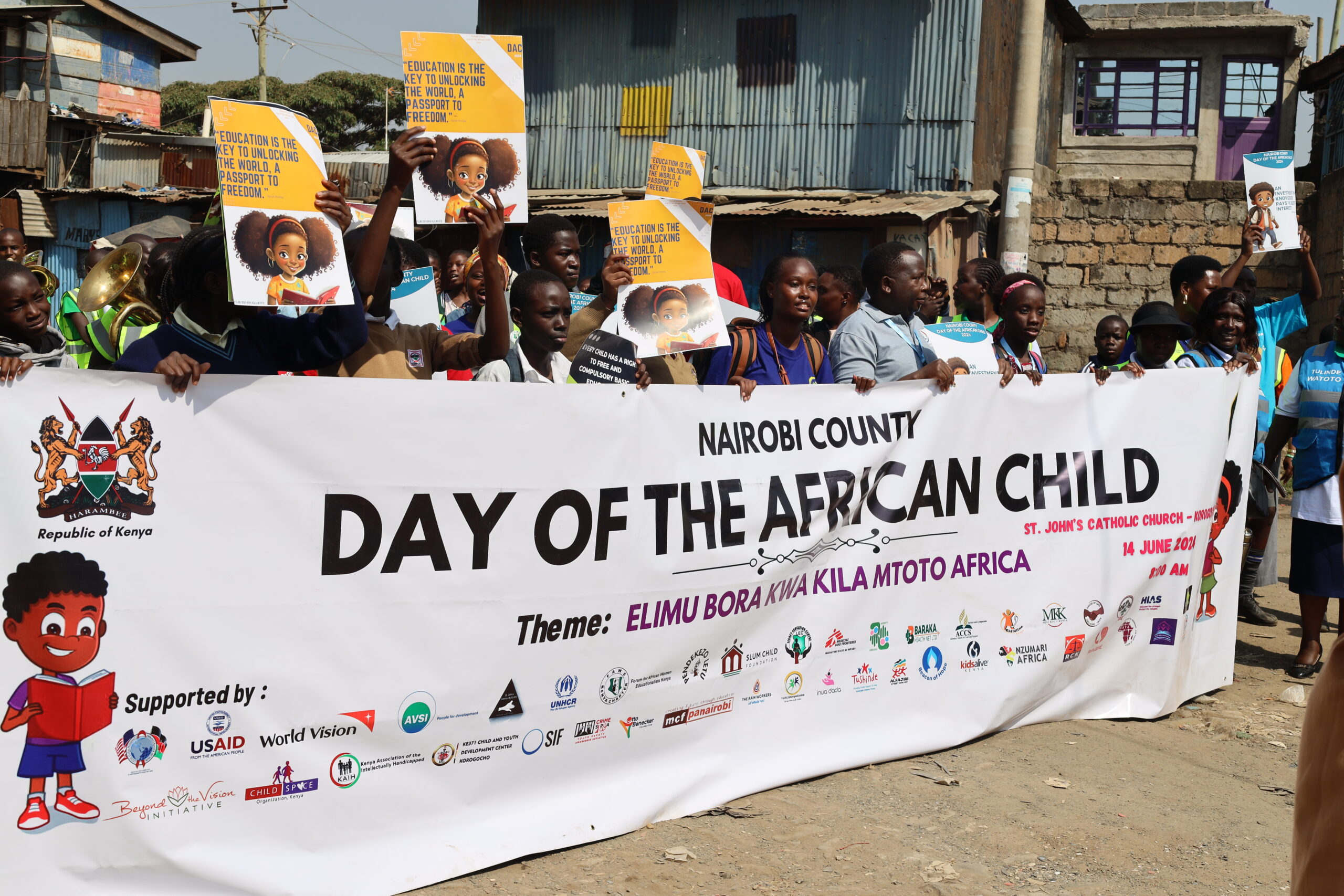Youth activist Cecelia (21) from Malawi noticed at a young age that sexual health, relationships and rights are hardly talked about in her country. When she herself had questions, no one was there to answer them. “My big sister and my parents never talked about it,” she said.
So later, when Cecelia did have the opportunity to learn more about sexual and reproductive health and rights (SRHR), she grabbed it with both hands. To then share her knowledge with as many peers as possible. “I found out that I was not the only one who had never learned about this before,” she says. “In a lot of African households, SRHR is taboo.”
Taboo
In part because topics such as sex and relationships are not talked about, teen pregnancy and HIV, for example, are common in Malawi. Health care in the area of SRHR also leaves much to be desired. “In principle, anyone can go to the health centers, but the threshold for girls and women is much higher,” states Cecelia. “The health centers are often in very crowded areas that are a lot more dangerous for girls than for boys. And the taboo also makes it harder for them to ask about contraception in such a busy place. Boys often dare to go in and get condoms, but for girls it’s a lot harder.”
In conversation
Cecelia therefore decided to get involved as a youth activist for the Break Free! program in Malawi. To make SRHR discussable and make young people aware of their rights. “I engage with girls and boys of all ages to provide them with the right information,” she says. “It is important that they know where they can get the right care, but also how they can protect themselves against HIV or an unwanted pregnancy. For example, we are active on social media and spread the information young people need there. The Break Free! program helps me connect with different youth groups and helps us work together to strengthen our message.”
“It is important that young people know where to get the right care, but also how to protect themselves from HIV or an unwanted pregnancy” – Cecelia
Cecelia has already been able to reach a lot of young people with her message, and the impact she and her fellow activists are making is significant. “We see that more people are talking about SRHR, for example at school or at clubs for young people. The taboo is becoming increasingly less. And we already see that the number of child marriages is decreasing. I am enormously proud of that.”
Lobby
Cecelia’s work has also already borne fruit at the national level. She lobbied the government about the state of health care in Malawi. “The budget for SRHR went up as a result. I also joined my fellow activists in talks with the Minister of Education to put proper sex education in schools on the agenda.”
Opposition
Although her work has already allowed her to achieve a lot, there is still a long way to go. “We still notice a lot of opposition from cultural and religious leaders, for example. They have a different view of sexual health and rights than we do, so it is very important that we also bring them into the discussion and manage to convince them of our views. But there are still a lot of myths within certain communities about contraception, for example. If you oppose that, it makes you the black sheep of the community.”
“There are still a lot of myths within certain communities about contraception” – Cecelia
Gender Is My Agenda
From Feb. 13 to 15, Cecelia attended the Gender Is My Agenda (GIMAC) pre-summit in Addis Ababa, Ethiopia. This is where women from all kinds of African countries and their allies come together to stand up for their rights and amplify the voices of girls and women. Here, as a youth activist, she called attention to governments and civil society organizations for more accessible sex education for young people. “This does require investment. Teachers need to be trained on conveying the right knowledge and the government needs to put more effort into using the right channels so that all young people, both urban and rural, can receive good sex education.”
Break Free! is a five-year program (2021-2025) of Plan International, SRHR Africa Trust (SAT) and Forum for African Women Educationalists (FAWE) and in strategic partnership with the Dutch Ministry of Foreign Affairs. We also work closely with Rozaria Memorial Trust and the KIT Royal Tropical Institute. Together with young people and local youth organizations, we are committed to the prevention of child marriage and teenage pregnancy and to the sexual and reproductive health and rights of young people. The program is implemented in nine African countries: Burkina Faso, Ethiopia, Kenya, Malawi, Mali, Mozambique, Niger, Sudan and Zambia.






Leave A Comment